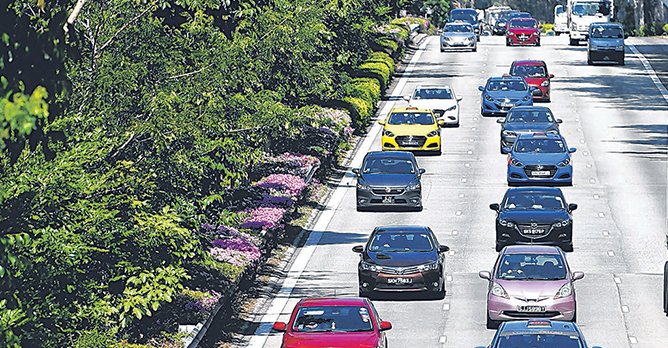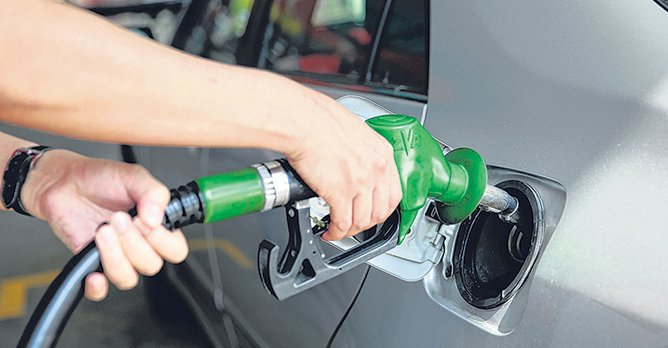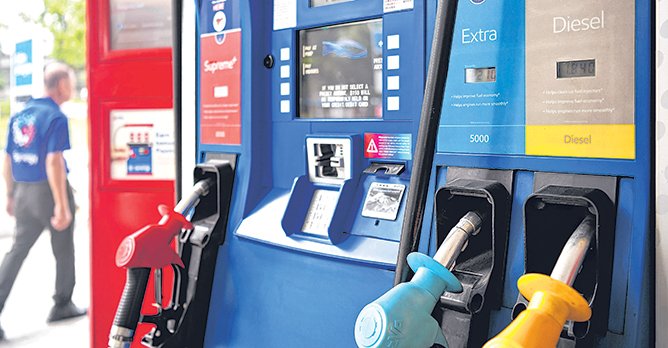Fuel prices remain despite sharp plunge in oil prices
21 Apr 2020|313 views
Fuel pump prices have not moved since late March, despite crude oil prices falling to below zero on Monday, 20 April 2020 before rebounding.
According to Bloomberg, a barrel of West Texas Intermediate (WTI) crude was at a record low of US$1.69 at 9:40pm on Monday, while Brent crude was at US$25.92 - down from around US$66 and US$74 respectively 12 months ago. Despite that, pump prices here remained stable.
According to Fuel Kaki, a Consumers Association of Singapore portal that tracks fuel prices, a litre of 92-octane and 95-octane petrol is listed at $2.05 and $2.09 respectively across all brands. These prices, before discounts, have remained unchanged since 25 March, when WTI was around US$20 and Brent around US$26.
A litre of 98-octane is listed at between $2.43 and $2.69, while diesel is between $1.69 and $1.72. Motorists have long complained that pump prices often reflect an increase in oil prices quickly, but are slow to reflect drops.
Mr. Jeremy Chua, Editor of online motoring magazine Torque, said, "There is no transparency in the pricing of petrol and diesel in Singapore. This is why time and time again, consumers accuse oil companies of collusion and cartel-like behaviour. Until transparent pricing is mandated, these accusations will continue."
In a Parliamentary sitting on 25 March, Ms. Lee Bee Wah from Nee Soon GRC asked if retail prices at petrol pumps reflected the plunge in crude oil rates, which had fallen sharply in earlier months. She also questioned the time lag in the price decrease being passed on to customers.
Senior Parliamentary Secretary for Trade and Industry and Foreign Affairs Tan Wu Meng said retail petrol prices here had, in fact, fallen with the steep decline in crude oil prices. He noted that between 2 Jan and March 9, oil prices had plunged from US$66 a barrel to US$34.
Dr. Tan said that more than three-quarters of the drop in the price of crude oil was passed on to customers. "The listed price of octane 95 petrol fell by $0.20 per litre, with a slight lag of six days. This represents a pass-through of over three-quarters of the decrease in crude oil price," he said.

So, a pass-through rate of about 70% is typical, Dr. Tan said, citing an in-depth study on retail petrol prices in 2017 by the then Competition Commission of Singapore. The survey also found that, on average, petrol prices take longer to go up when global crude oil prices increase, compared with the decrease when crude oil prices fall.
Meanwhile, gas and electricity tariffs have not changed significantly from a year ago. According to the Energy Market Authority, the general gas tariff for the April-June period is 17.11 cents per kWh, down from 17.23 cents in the Jan-March period, and 18.8 cents in April-June 2019. Domestic electricity is 24.62 cents per kWh for April, down from 25.94 cents in January. It was 24.39 cents last April. Natural gas is the main fuel for power generation here. The commodity is trading at US$1.93 per million British Thermal Units, down from U.S$2.52 12 months ago.
Fuel pump prices have not moved since late March, despite crude oil prices falling to below zero on Monday, 20 April 2020 before rebounding.
According to Bloomberg, a barrel of West Texas Intermediate (WTI) crude was at a record low of US$1.69 at 9:40pm on Monday, while Brent crude was at US$25.92 - down from around US$66 and US$74 respectively 12 months ago. Despite that, pump prices here remained stable.
According to Fuel Kaki, a Consumers Association of Singapore portal that tracks fuel prices, a litre of 92-octane and 95-octane petrol is listed at $2.05 and $2.09 respectively across all brands. These prices, before discounts, have remained unchanged since 25 March, when WTI was around US$20 and Brent around US$26.
A litre of 98-octane is listed at between $2.43 and $2.69, while diesel is between $1.69 and $1.72. Motorists have long complained that pump prices often reflect an increase in oil prices quickly, but are slow to reflect drops.
Mr. Jeremy Chua, Editor of online motoring magazine Torque, said, "There is no transparency in the pricing of petrol and diesel in Singapore. This is why time and time again, consumers accuse oil companies of collusion and cartel-like behaviour. Until transparent pricing is mandated, these accusations will continue."
In a Parliamentary sitting on 25 March, Ms. Lee Bee Wah from Nee Soon GRC asked if retail prices at petrol pumps reflected the plunge in crude oil rates, which had fallen sharply in earlier months. She also questioned the time lag in the price decrease being passed on to customers.
Senior Parliamentary Secretary for Trade and Industry and Foreign Affairs Tan Wu Meng said retail petrol prices here had, in fact, fallen with the steep decline in crude oil prices. He noted that between 2 Jan and March 9, oil prices had plunged from US$66 a barrel to US$34.
Dr. Tan said that more than three-quarters of the drop in the price of crude oil was passed on to customers. "The listed price of octane 95 petrol fell by $0.20 per litre, with a slight lag of six days. This represents a pass-through of over three-quarters of the decrease in crude oil price," he said.

So, a pass-through rate of about 70% is typical, Dr. Tan said, citing an in-depth study on retail petrol prices in 2017 by the then Competition Commission of Singapore. The survey also found that, on average, petrol prices take longer to go up when global crude oil prices increase, compared with the decrease when crude oil prices fall.
Meanwhile, gas and electricity tariffs have not changed significantly from a year ago. According to the Energy Market Authority, the general gas tariff for the April-June period is 17.11 cents per kWh, down from 17.23 cents in the Jan-March period, and 18.8 cents in April-June 2019. Domestic electricity is 24.62 cents per kWh for April, down from 25.94 cents in January. It was 24.39 cents last April. Natural gas is the main fuel for power generation here. The commodity is trading at US$1.93 per million British Thermal Units, down from U.S$2.52 12 months ago.
Latest COE Prices
December 2025 | 1st BIDDING
NEXT TENDER: 17 Dec 2025
CAT A$105,413
CAT B$123,900
CAT C$76,501
CAT E$123,000
View Full Results Thank You For Your Subscription.






















